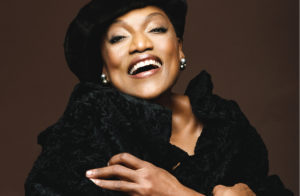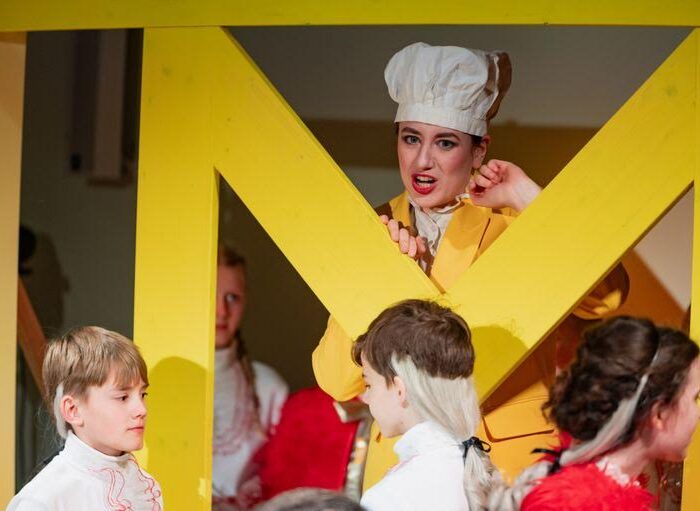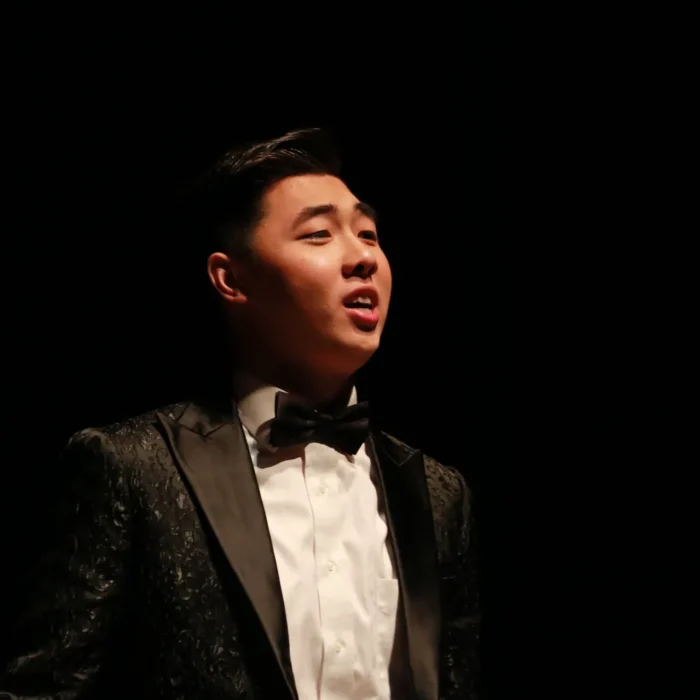
Metropolitan Opera Honors Legendary Soprano Jessye Norman With Heart-Warming Tribute
By Logan MartellOn November 24, 2019, audiences gathered at the Metropolitan Opera to pay tribute to the life and career of Jessye Norman. The event comprised of musical performances, video highlights of Jessye’s performances, and statements from her family, friends, and colleagues.
First among these highlights were two clips of Norman singing “Amazing Grace,” from her performances at the 1997 Presidential Inauguration of Bill Clinton, and at the 1995 Kennedy Center Honors ceremony.
The first of the live performances came from sopranos Leah Hawkins and Latonia Moore, singing the traditional “Great Day,” along with the Metropolitan Opera Chorus and members of the ensemble of the company’s production of “Porgy and Bess,” accompanied by Gospel great Damien Sneed.
Following this number, Metropolitan Opera General Manager Peter Gelb took to the stage to share his experiences with Norman, saying: “If Yankee Stadium was the house built by Babe Ruth, then the Metropolitan Opera is the house built by Jessye Norman. Of course, Jessye was far from alone in filling this hallowed hall with her glorious voice. She was joined by those such as Leontyne Price and Luciano Pavarotti, but in her operatic prime in the 80s and 90s, her majestic vocal cords reigned supreme in the dramatic soprano and mezzo range. Like the great Babe Ruth, who swung for the fences, Jessye swung for the standing room and family circle, and she always connected. Today, joined by her family, and some of her most ardent admirers, we celebrate Jessye’s extraordinary life in spoken, video, and live performance tributes.”
“As a film-maker and producer in the 80s and 90s, I was fortunate to be in the right places at the right time to bear witness to several of Jessye’s most memorable performances,” Gelb continued. “At Carnegie Hall, where she sang the famous spiritual concert, together with Kathleen Battle in the presence of Marian Anderson; in Paris where she was recorded with Seiji Ozawa; in Leningrad, which was still Leningrad back then, where sang Tchaikovsky for the composer’s 150th birthday; in the Japanese alps when she portrayed Jocasta in Julie Taymor’s stunning ‘Oedipus Rex;’ at the Met, where sang Ariadne and Sieglinde, two of her greatest roles, in front of televised audiences in the millions; at Salzburg, where encountered Herbert von Karajan for the first time while unforgettably singing the ‘Liebestod’ from ‘Tristan and Isolde.’”
After this came a slideshow of Norman with a number of friends, relatives, and fellow artists with remarks from her siblings, Elaine Norman Sturkey and James Howard Norman, relating their varying experiences of growing up alongside her. The next musical numbers were Duke Ellington’s “Heaven,” sung by J’Nai Bridges, and Richard Strauss’ “Morgen, Op. 27, No. 4,” sung by Lise Davidsen and accompanied by Mark Markham.
Among the list of speakers was Carnegie Hall Artistic Director Clive Gillinson, opening with a few words on behalf of conductor Ricardo Muti, saying: “He sends his apologies for not being today. He wrote: ‘Jessye Norman was a remarkable singer and a great musician. I had the great fortune of collaborating with her many times, in opera, recitals, and more. Her voice was unique for the depth and beauty of its tambour.’”
“On my own behalf,” Gillinson continued, “I would like to thank Jessye’s family and Peter Gelb for the great honor of being asked to speak today. I speak as a friend, an admirer, and someone who was a very fortunate artistic partner of Jessye’s. When talking about her, I think one has to start at her roots, which remained fundamental throughout her life. Those roots outline her extraordinary artistry and humanity, gave her the strength to fly, and through her breathtaking flight, she conquered the hearts of the entire world.
“At her funeral in Augusta, It was incredibly moving to see the overwhelming love, admiration, and pride that the people of her home city felt for her… Jessye and I became friends during my time managing the London Symphony Orchestra, where she participated and illuminated many remarkably projects. She was adored by all the conductors with whom we worked, and was consistently their first choice that they requested. This included Leonard Bernstein, Colin Davis, Andre Previn; some of the most incredible artists in the world. When I arrived at Carnegie Hall, my first initiative was to create a city-wide multicultural festival, and our dream was to pay tribute to the African-American cultural legacy, with Jessye as the curator.
“Now I knew how unbelievably busy she was, I had heard the rumors and I had something I really wanted to discuss with her, and she invited to her home for lunch and we talked it out. I asked her, she topped and smiled, saying ‘Clive, this is the project I’ve been waiting my entire life for.’ So she did curate it and it was an extraordinary project that she put her heart and soul into developing a concert that meant everything to her heritage, and we’ve done many projects since then.”
Next among the fitting musical numbers was an “Excerpt from Wotan’s Farewell,” from Wagner’s “Die Walküre,” sung by Eric Owens, who was accompanied by Markham.
Also paying their respects to Norman were two dance numbers from companies who she had supported. First was the Dance Theatre of Harlem, with Ailicia Graf Mack performing along with a recording of Norman singing the traditional song “Balm in Gilead.” The next dance number was “Excerpts from Revelations,” choreographed by the Alvin Ailey American Dance Theater, and featuring spirituals arranged by Howard A. Roberts and Brother John Sellers.
Between these numbers was Renée Fleming, singing Strauss’ “Beim Schlafengehen,” joined by violinist David Chan and accompanied by Gerald Martin Moore.
The last of the speakers was actress Anna Deavere Smith, relating one very meaningful instance
“I keep thinking about a train. Summertime I often went to see Jessye sing in Europe. In August of 1999 I was one of the 80,000 people assembled outside the Cathedral of Notre Dame in France to experience the total eclipse of the sun,” she narrated. “After two minutes and 23 seconds in complete darkness, Jessye appeared in the steps of the cathedral and sang into the emerging sunlight, singing the dark into light. She sang “He’s Got the Whole World in His Hands” Jessye understood a lot about singing through things. As I got to know Jessye better, around the time she signed her emails ‘big sis’ and I signed mine ‘little sis,’ I discovered part of the fun of traveling for one of her performances was to arrive a couple of days early. I loved being in the trenches with Jessye’s team as they reviewed plans for a performance, and then the dinners; Jessye loved long dinners and rousing conversations with lots of laughter, many of you know all about that…
“At Jessye’s request I arrived a few days earlier for her sacred Ellington concert on the French-Italian Border, to give moral support. At breakfast I learned about the train… there were train tracks right by the stage and a train that was scheduled to go by right in the middle of Jessye’s concert, and they asked if she would prefer the train go faster, meaning louder, or if she would prefer it going slower, meaning it would be less loud but take longer. I don’t remember what the decision was, I do remember that when the train came Jessye was hitting a high note, and I heard Jessye. She sang through it. Jessye often spoke to me about singing through, about how African-Americans have a tradition of singing our way through troubles, not out of them.”
Bringing the afternoon’s celebration to a stunning conclusion was Leah Hawkins and Latonia Moore, singing “He’s Got the Whole World in His Hand.” While it has been two months since Norman’s passing in September, it is clear to see that Norman’s influence and legacy will last for years to come.
Categories
News


